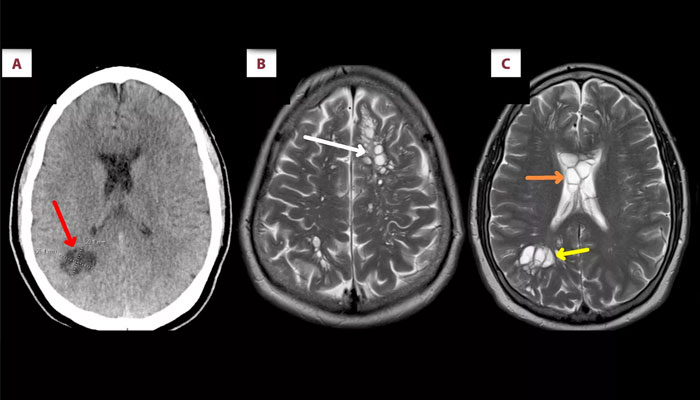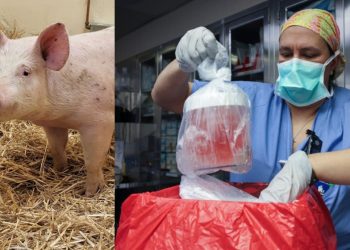While treating a man’s chronic migraines in Florida, doctors found worm eggs living in his brain that were the causing him the pain, according to a report published in the American Journal of Case Reports.
But how did they end up there?
Doctors treating the unnamed 52-year-old man, who went to the hospital complaining that his migraines were now occurring weekly, were left scratching their heads asking the same question.
They had found a mass in his computed tomography (CT) scan which they initially thought were “congenital neuroglial cysts” and immediately admitted him to the hospital.

They performed a magnetic resonance imaging (MRI) and other tests that confirmed that these masses weren’t cysts, but were the larvae of tapeworms.
“Cysticercosis IgG Cysts antibody returned positive, confirming the suspicion of neurocysticercosis,” the report said.
According to the Centers for Disease Control and Prevention (CDC), “neurocysticercosis” is a preventable parasitic infection caused by the immature stage of the pork tapeworm, which can infect various parts of the body, including the brain.
This can also lead to seizures.
The study highlighted that neurocysticercosis cases are rare outside of classic exposures or travel, and in the United States, such cases were thought to be nonexistent.
The man’s case may have public health implications, as he had a habit of eating lightly cooked, non-crispy bacon for most of his life, which doctors theorised as the source of his infection.
“It can only be speculated, but given our patient’s predilection for undercooked pork and benign exposure history, we favour that his cysticercosis was transmitted via autoinfection after improper handwashing after he had contracted taeniasis himself from his eating habits.”
The CDC explained that if a person gets tapeworm infection by eating infected pork, the person is likely to spread the infection.
“Once inside the body, the eggs hatch and become larvae that find their way to the brain. These larvae cause neurocysticercosis.”
The doctors treated the man with antiparasitic and anti-inflammatory medications and instructed to follow up with an infectious diseases clinic.



















































